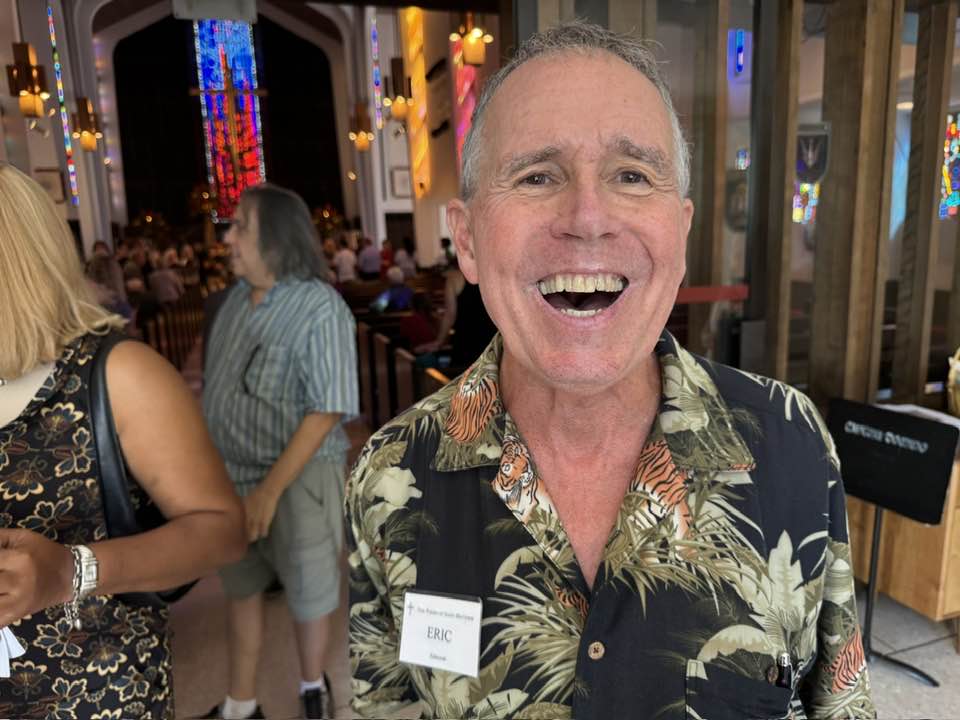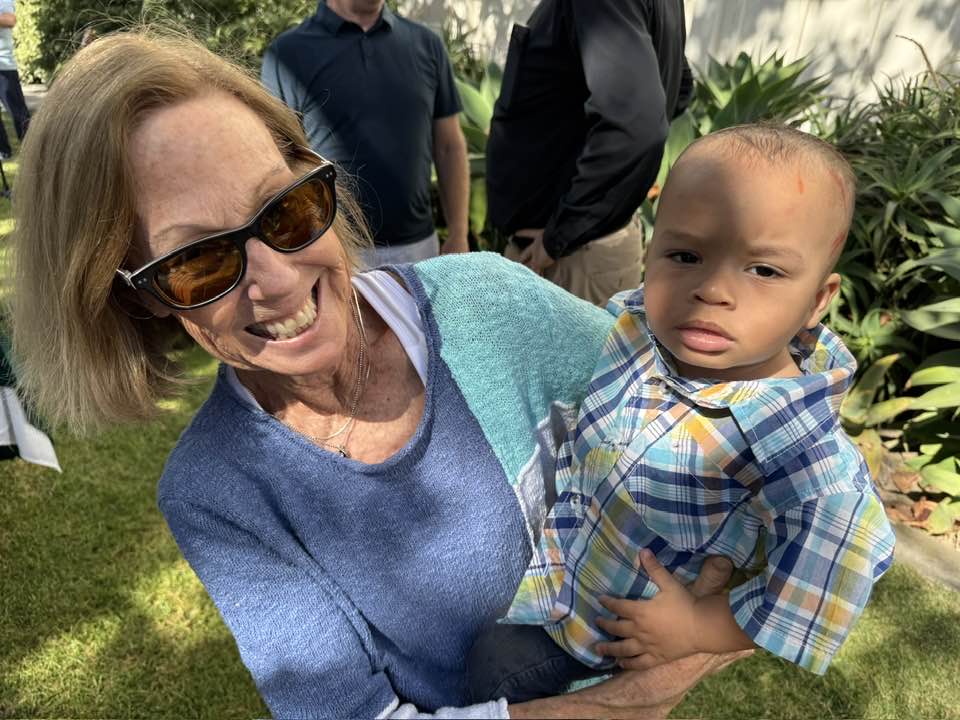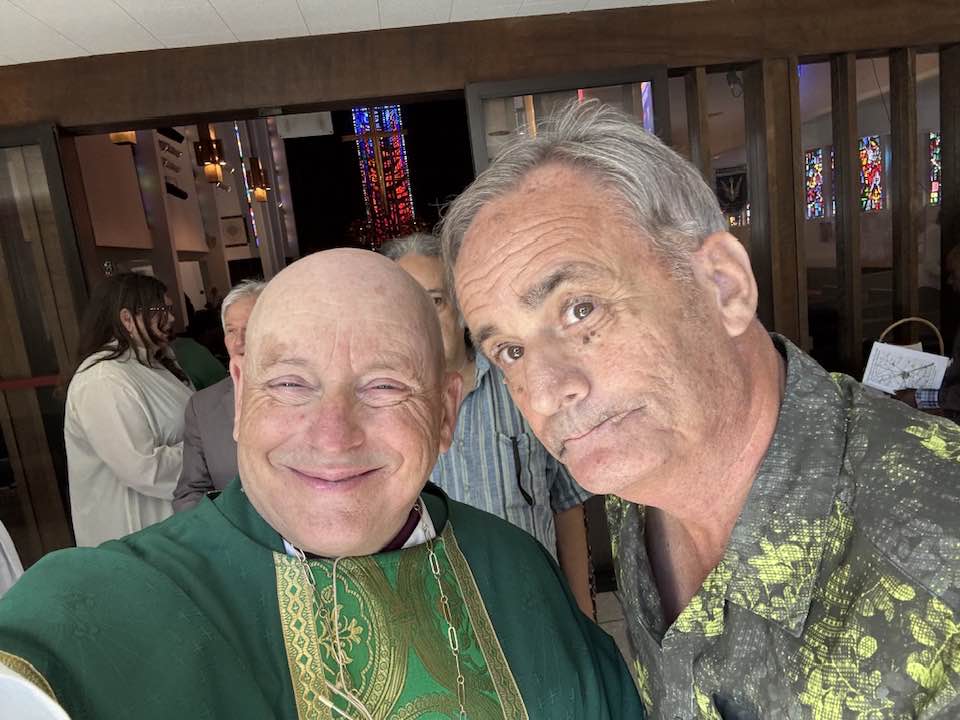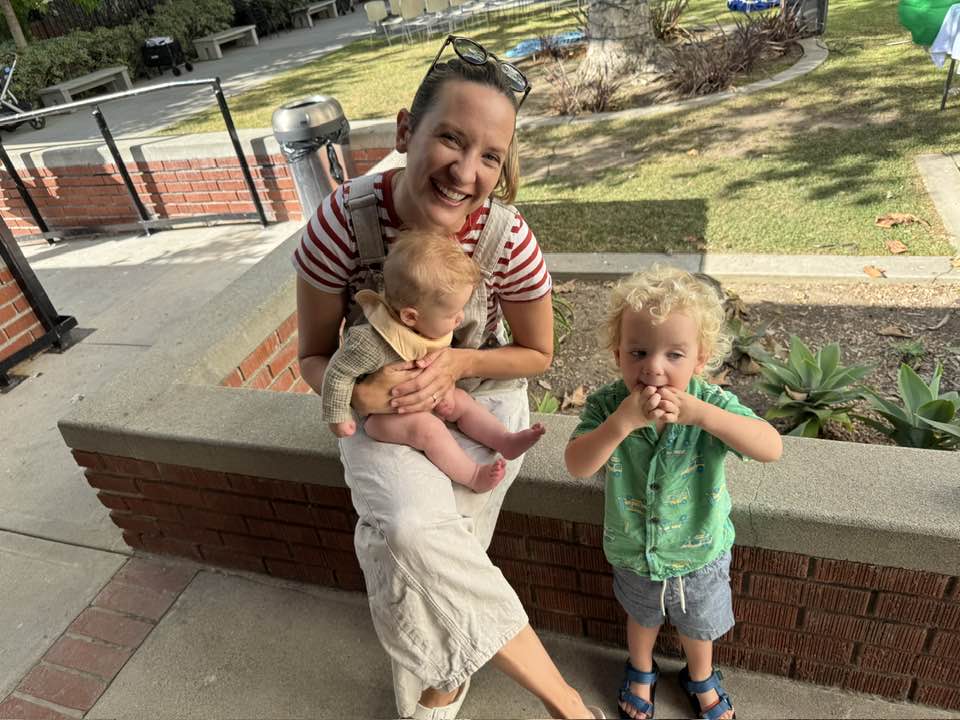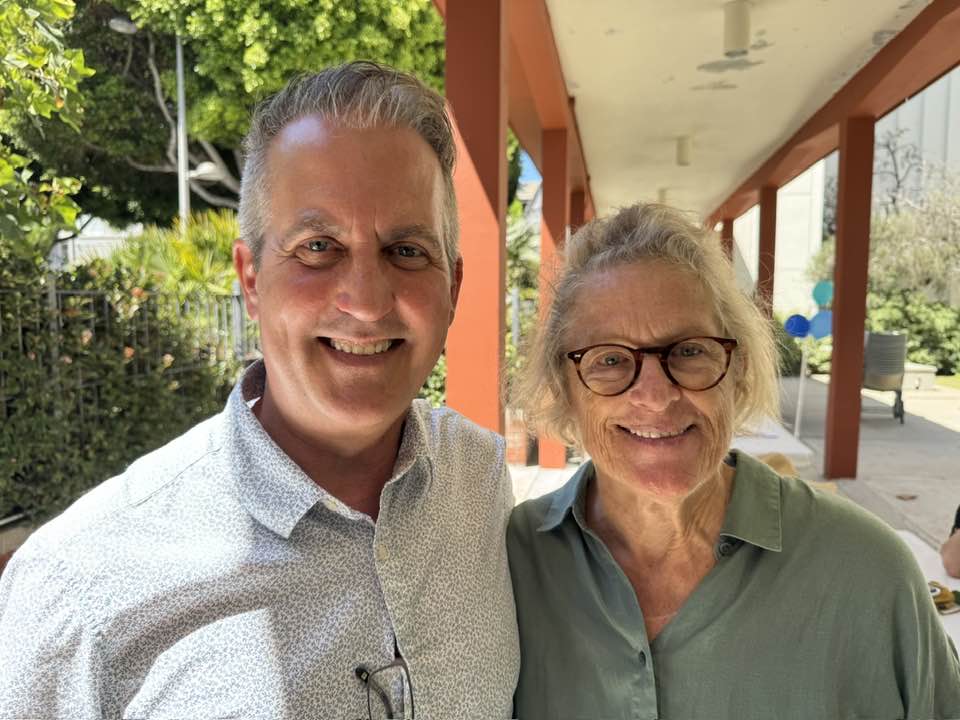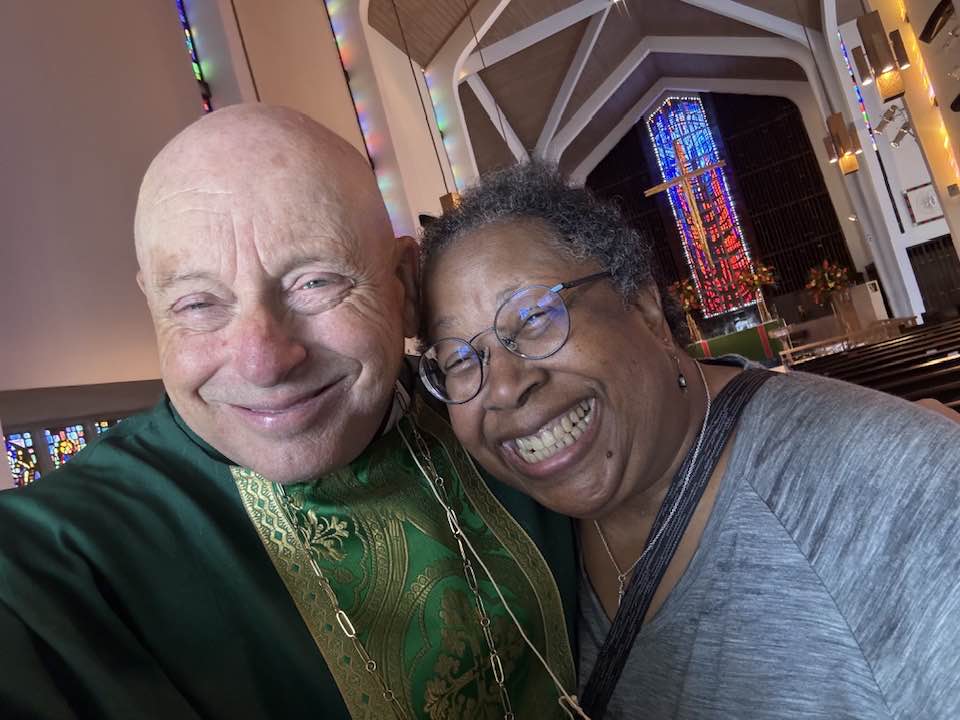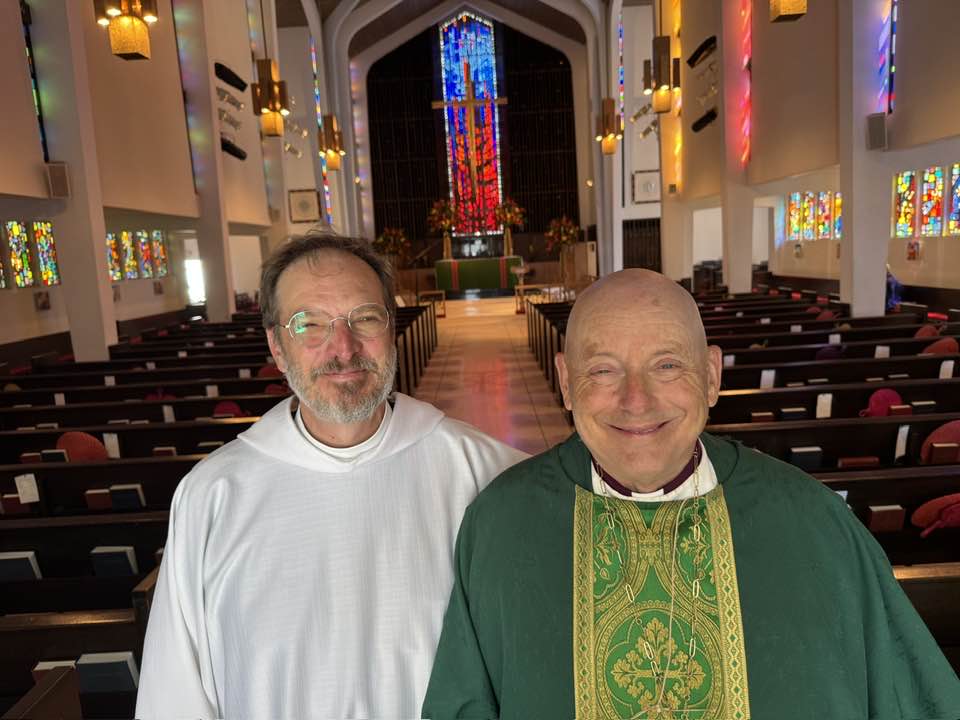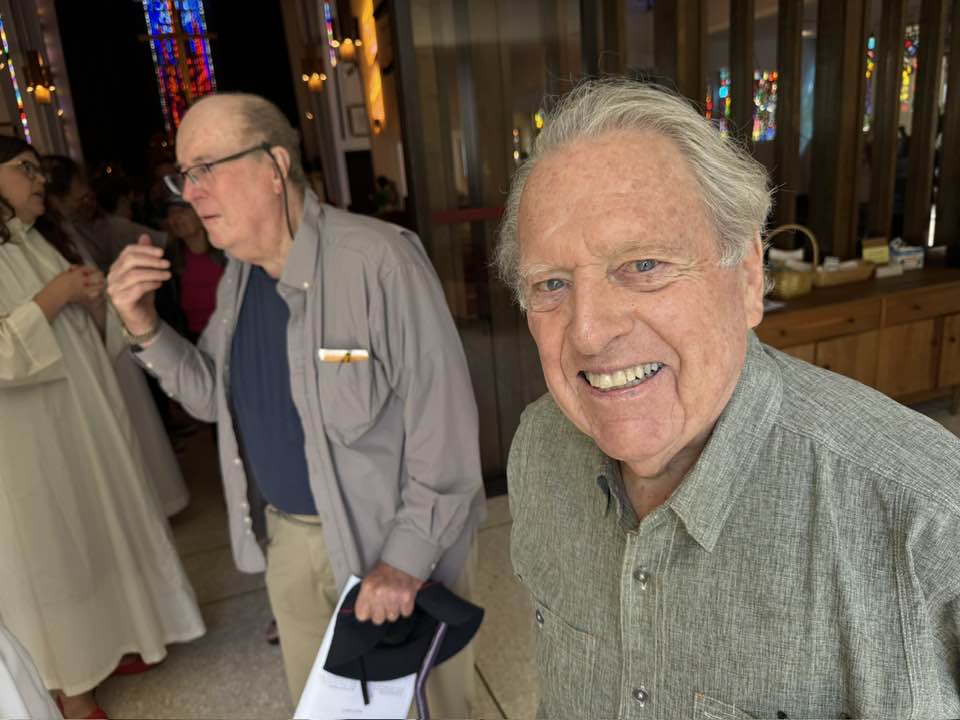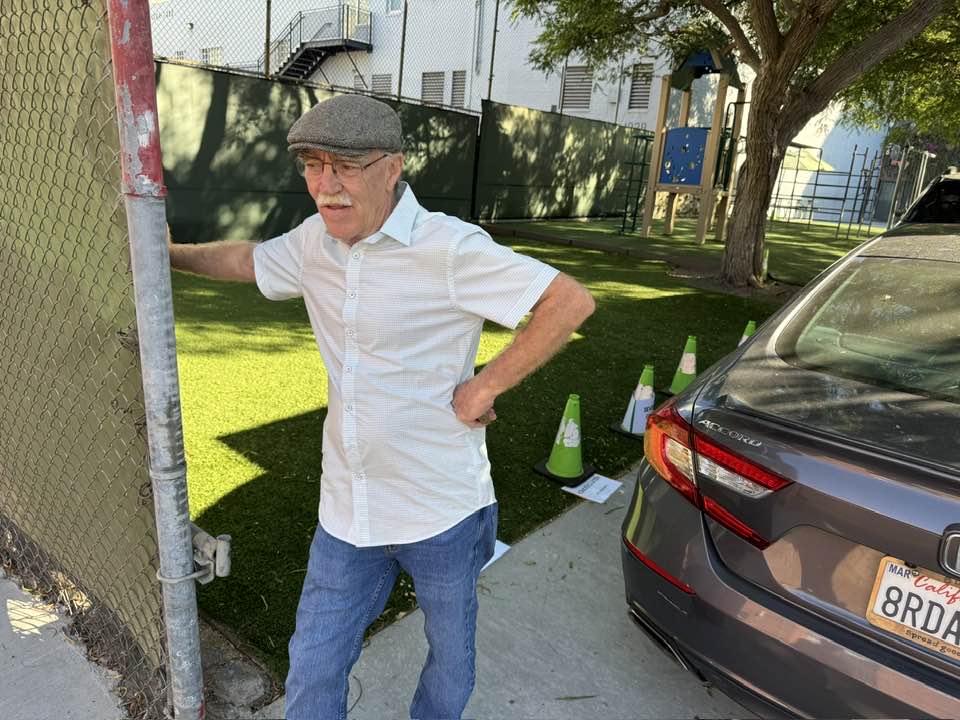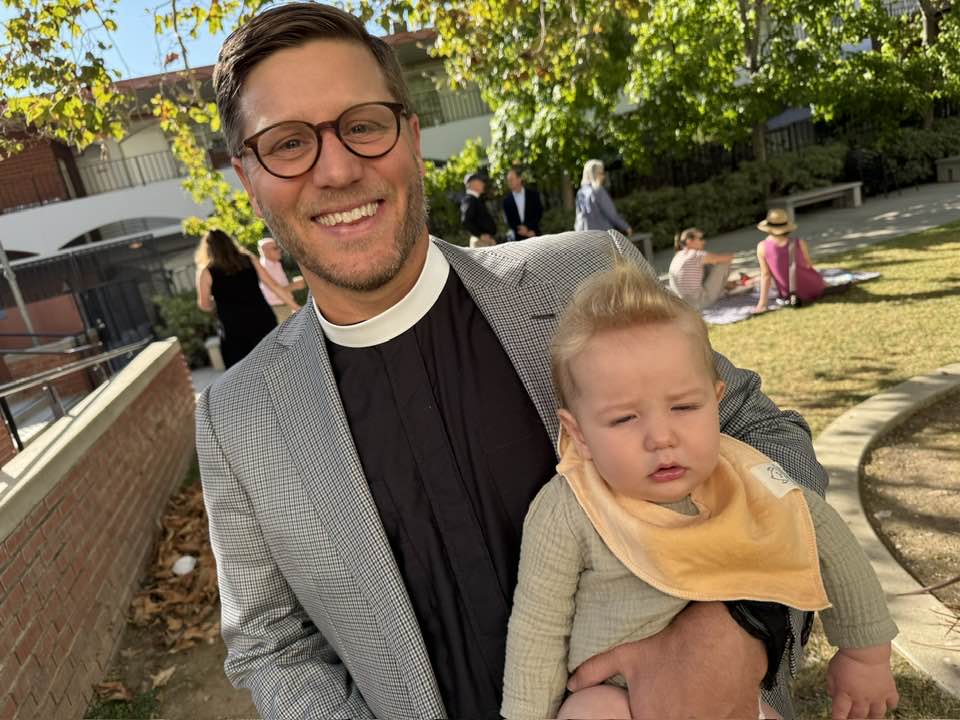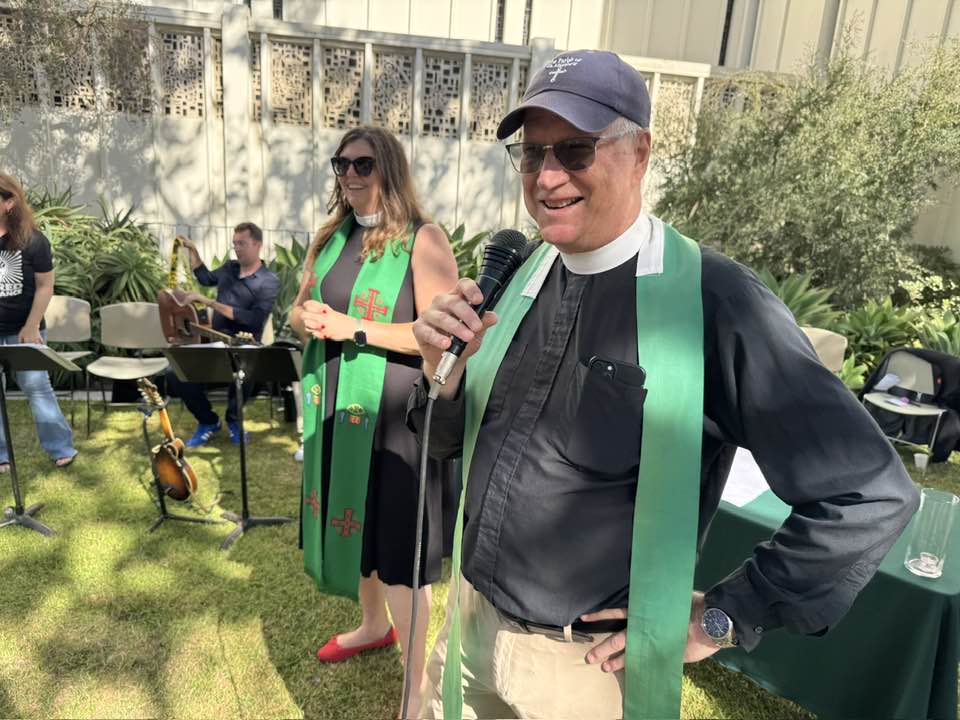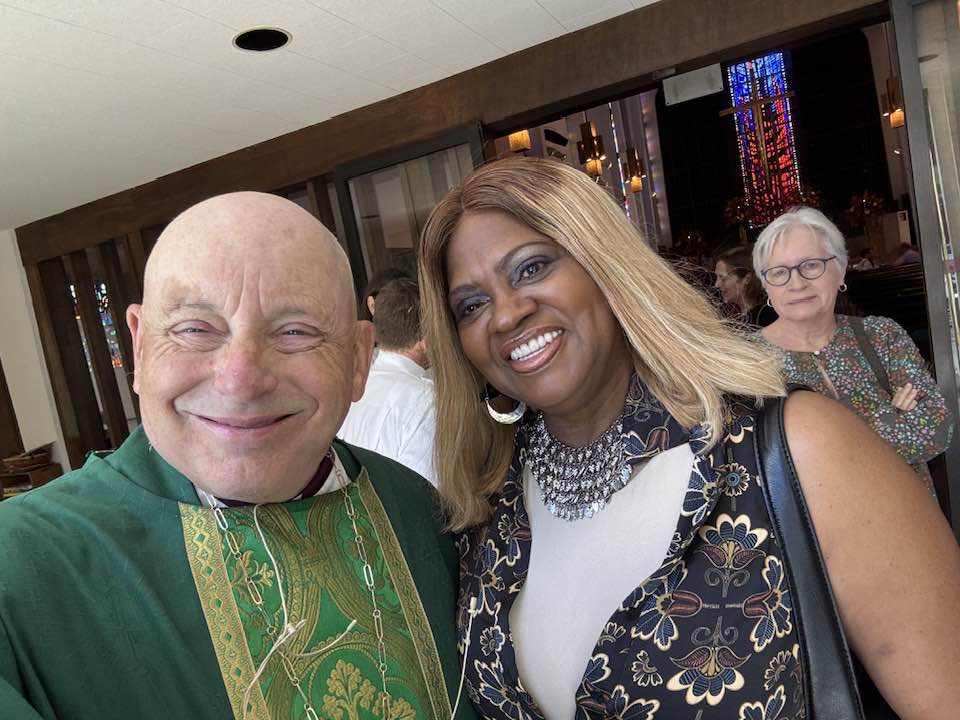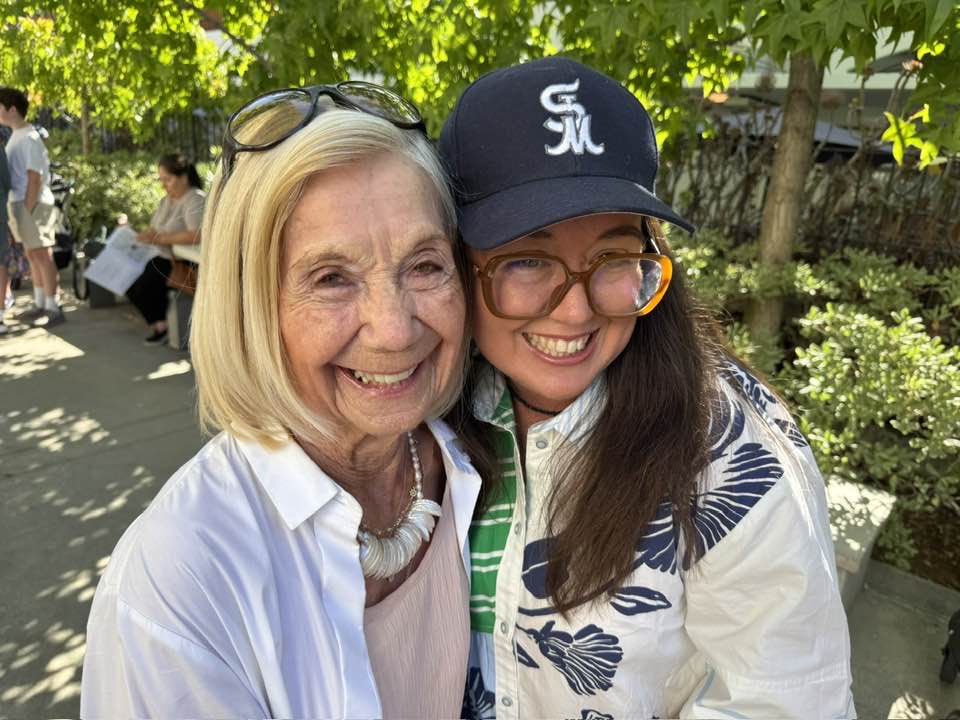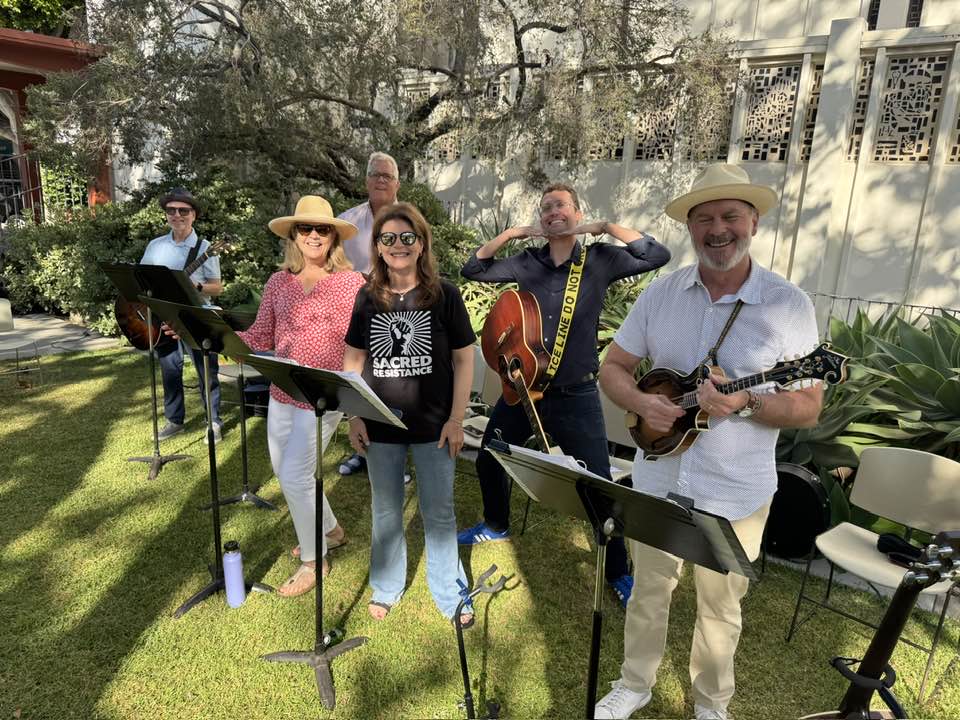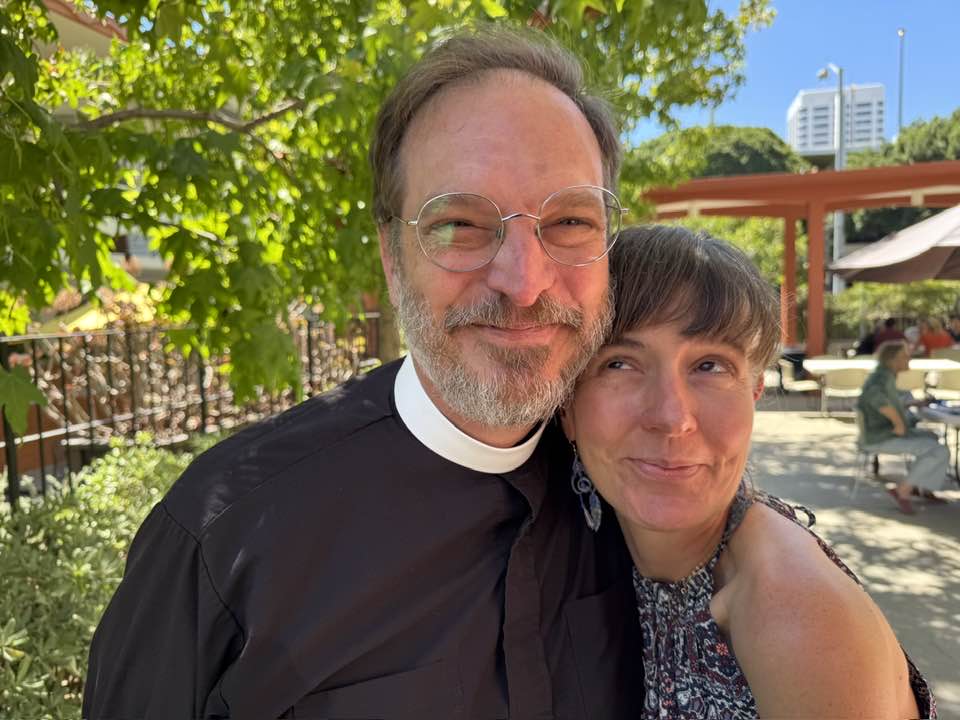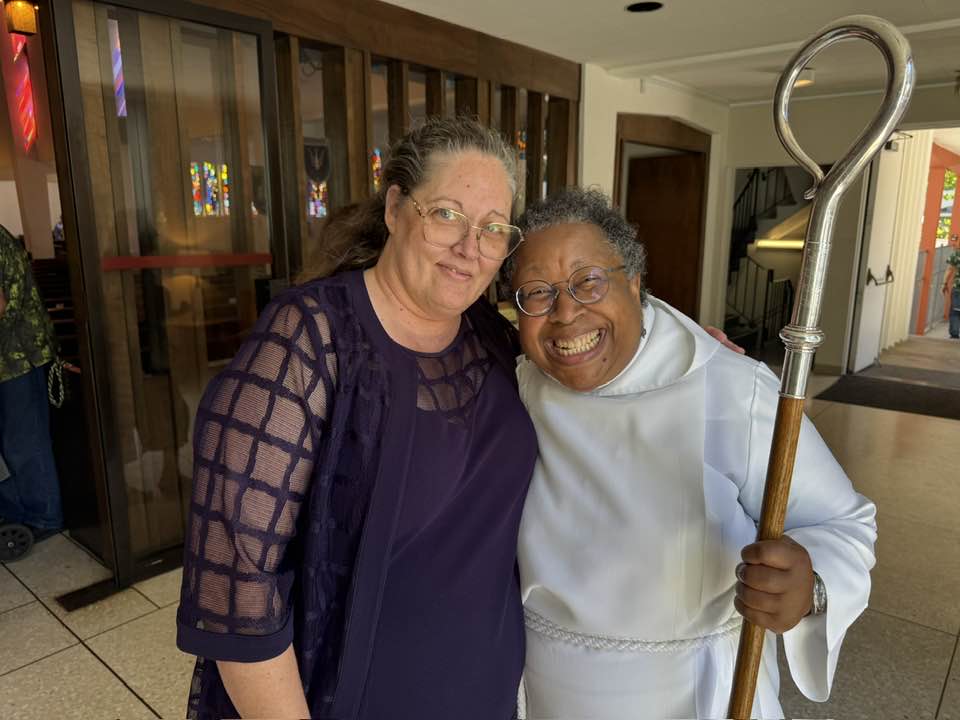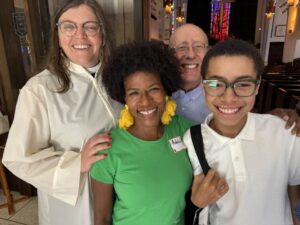 How can a bishop visit two parishes at the same time? When venturing to St. Augustine by-the-Sea Episcopal Church in Santa Monica, which is home away from home for The Parish of St. Matthew – The Episcopal Church in Pacific Palisades since January’s wildfires. Hundreds of St. Matthew’s folks lost their homes, with their beautiful church building needing months of remediation. Many of the parish school’s buildings were damaged or destroyed as well.
How can a bishop visit two parishes at the same time? When venturing to St. Augustine by-the-Sea Episcopal Church in Santa Monica, which is home away from home for The Parish of St. Matthew – The Episcopal Church in Pacific Palisades since January’s wildfires. Hundreds of St. Matthew’s folks lost their homes, with their beautiful church building needing months of remediation. Many of the parish school’s buildings were damaged or destroyed as well.The fires were still burning when the Rev. Nathan Rugh, the St. Augustine’s rector, called St. Matthew’s and said, “Come on down!” The parishes have been sharing physical and liturgical space ever since,
I was along Sunday to preside and preach at two services. St. Matthew’s folks predominated at an informal 9:15 a.m. liturgy in the sun-dappled courtyard. The parish’s troupe of folk musicians, the Sultans, kept our toes tapping even as the preacher tangled with Jesus’s teaching, in Luke’s gospel, that mature Christian discipleship requires giving up one’s possessions. A third or more in the congregation had just had that circumstance thrust upon them.
St. Matthew’s is also reeling from the news that their beloved rector, the Rev. Bruce A. Freeman, will retire in October to devote himself fully to his battle against cancer. He was in his usual exuberant form when he announced during the service that the church building is nearly ready for worship again, and he’ll still be aboard to welcome the parish home. Also on hand were the Revs. KC Robertson and Stephen Smith, the St. Matthew’s associate rectors, who lost their homes, as did Bruce.
We had a scheduled confirmation and two impromptu receptions. Seven more were confirmed, received, or reaffirmed at the 10:30 service, which was in the church with mostly St. Augustine’s folks aboard. As is often the case, many of the candidates’ stories revealed their joy at hearing the good news of the Risen Christ proclaimed in a church which is small in numbers and yet mighty in our resolve, at long last, to take with utter seriousness our baptismal commitment to the dignity of every human being, without regard to race or nation, orientation or identification.
Critics of the progressive denominational church often say we’ve lost our way. Sunday’s readings suggested otherwise. It’s true that for centuries, Christianity was compulsory, wielding guilt and shame like cudgels, enforcing its dictates even unto pain and death. Not so at the beginning. We heard the bulk of Paul’s shortest letter, Philemon, in which he urges his friend to emancipate Onesimus, an enslaved convert. Paul makes clear that he had the authority in the Christian movement to compel Philemon’s obedience but says he would much rather he acted of his own accord. So trust your people, but verify. In verse 22, which the lectionary compilers left out, Paul asks Philemon to prepare a room for him. During his visit, he obviously planned to check to see if Onesimus was indeed free.
Paul is confident enough in his status and respectability that he knows his friend will want to please him. It makes one wonder how the world might have been different if church leaders had done as Jesus Christ commanded and treated one another as he had treated them. What keeps spiritually hungry skeptics away from church? Many things, but especially our disputatiousness, schisms, misconduct, and hypocrisy. Paul practicing what he preached turns out to have been a powerful tool for evangelism. In this sense, the unity these two parishes created is an example for us all.
